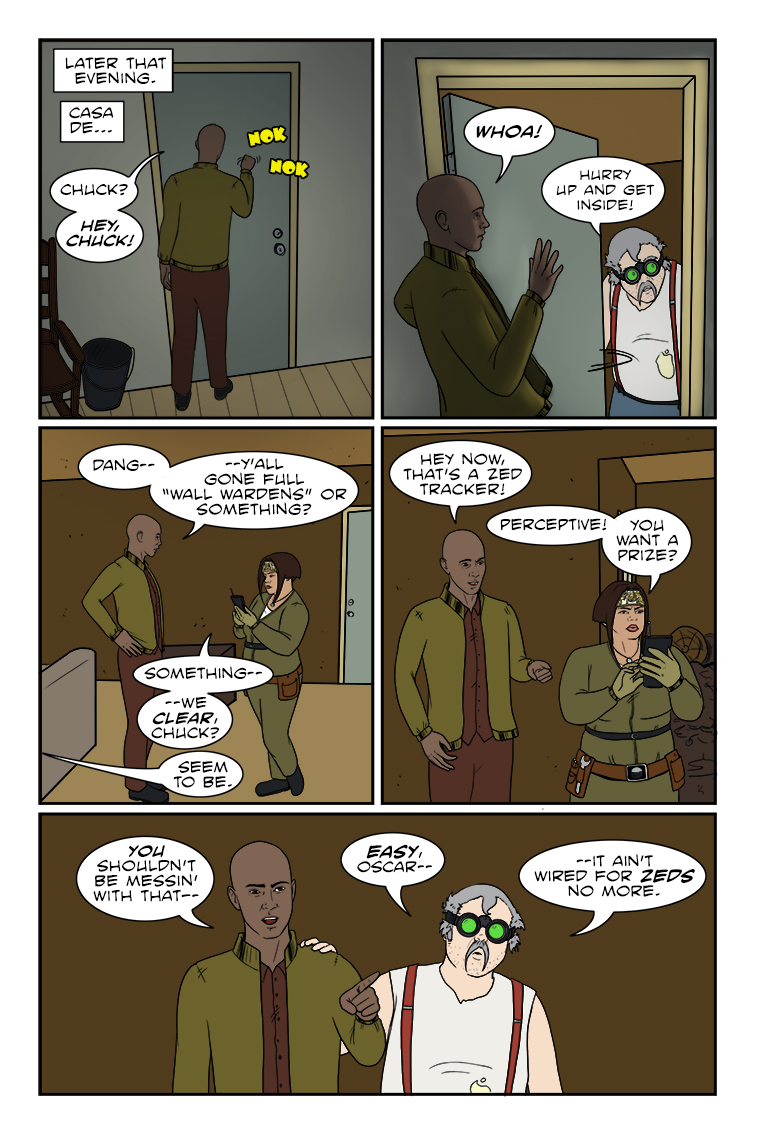Cart
Product categories
Support Us!
If you like what I do please support us on Ko-fi or Patreon.
Follow Us!
Join Our Newsletter!
Vote For Us!
Login
Polls
Events
-
Pasadena Comic Con
Dates: Jan 26
Location: Pasadena Convention Center, 300 E Green St, Pasadena, CA 91101, USA ( MAP)Details:We will be at the Pasadena Comic Con on January 26th. See some of you there for this one day event!
Purchase tickets online at here: https://www.tixr.com/groups/pcc/events/pasadenacomiccon-pasadena-comic-con-2025-115248









3 thoughts on “536 – Great State Of Tech Sass”
Anonymous
Amusing spam above … Things are about to get weird with Casa De Chuck!
Dawn
Ugh, I try to get to the SPAM quicker but we have a new kitty and I have been distracted. It is gone now. 😀
Anonymous
New kitty tops spam any day … and I enjoy getting to see it in it’s brief lifespan.
Latest Comics
#317. 304 – BMX-ceptions
10 Aug 10, 2016
#316. 303 – Lines In The Sand
13 Aug 03, 2016
#315. 302 – Hazy Optimism
10 Jul 13, 2016
#314. 301 – Conflicting Directions
28 Jul 06, 2016
#313. 300 – Errors Of Judgment
38 Jun 29, 2016
#312. 299 – Not Ready For Primetime
38 Jun 22, 2016
#311. 298 – Who Wakens The Watchmen?
38 Jun 08, 2016
#310. 297 – Going Under Cover
43 Jun 01, 2016
#309. 296 – Victims And Circumstances
41 May 25, 2016
#308. EPISODE THIRTEEN
44 May 23, 2016
#307. 295 – Reality Ensues (END OF EPISODE 12)
44 May 11, 2016
#306. 294 – Let It Go
43 May 04, 2016
#305. 293 – Laughing Sass
13 Apr 27, 2016
#304. 292 – Pointing The Finger
12 Apr 20, 2016
#303. 291 – Informed Decisions
15 Apr 13, 2016
#302. 290 – Omission Briefing
12 Apr 06, 2016
#301. 289 – Gut Feelings
10 Mar 23, 2016
#300. 288 – Dawning Unease
13 Mar 16, 2016
#299. 287 – Radio Interference
13 Mar 09, 2016
#298. 286 – Discussing The Stakes
12 Mar 02, 2016
Latest Chapters
Episode 22
Episode 21
Episode 20
Episode 19
Episode 18
Episode 17
536 – Great State Of Tech Sass
Welcome to Team Paranoid, Oscar! Spoiler alert: they really are out to getcha!
Next comic page planned for Nov. 20th. In the meantime, please accept this documentary evidence of new kitten Morgoth as he discovers the enigma that is the empty soda box.
Watch your language…
Calendar
Writer’s Blog Archives